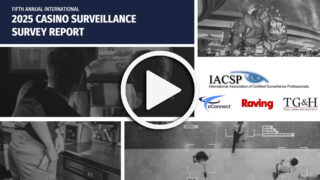
To make critical decision for your casino operation
This may sound weird to many of you, but I LOVE to read and analyze financial statements. I always have. As I understand it though, I am in a very small minority. Many gaming commissioners, board members, tribal council members, and even casino management don’t fully understand the story that the annual audited financial statements tell. I am about to give you a peek inside the accountants’ secret code so that you can pick up audited financial statements and get something meaningful from them. Let’s get cracking.
We’re going to walk through the key elements of the audited financial statements and break the code on each one. Each of the elements can provide some information about the casino and its operations.
MD&A (Management’s Discussion & Analysis)
The MD&A is an opportunity for management to tell the reader about the casino’s performance. Why things were good or bad. Although the MD&A is considered Required Supplementary Information (RSI) for governmental financial reports, such as Tribe-owned casinos, many do not include it in their financial report. If it isn’t present, the auditor will mention it in their report or opinion, but it won’t keep the casino from receiving a “clean” opinion.
Auditor’s Report (Opinion)
That brings us to the second element, the auditor’s report. I can’t stress enough how important it is that you read the report. If you don’t read the auditor’s report, you may draw wrong conclusions from looking at the numbers on the pages that follow it. The report gives the auditor’s opinion on the accuracy and reliability of the financial statements. Most of the language has been developed by the accounting profession over the years to present the auditor’s opinion, while trying to protect their firm from lawsuits. Many people skip over this section because it is so confusing to read, but that is a mistake. Here’s the decoding tool for reading the report and understanding what it says.
What type of “opinion” is it? There are four possibilities, but only one is good. Here they are in order of desirability:
A. Unmodified, formerly known as Unqualified
This is what you want, a “clean opinion.” Look for the phrase “presents fairly, in all material respects.” It doesn’t mean that everything is great with the casino’s accounting or operations, just that the financial statements can be relied on for decision-making.
B. Modified or Qualified
There was an issue that couldn’t be or wasn’t resolved by making an adjustment to the financials. The opinion paragraph will include “Except for.” There will also be a paragraph in the auditor’s report explaining what the issue is. There may be a reference in the report to the footnotes, where more details may be found. Financials are reliable except for whatever issue is noted.
C. Adverse
The financials “do not present fairly” because there are too many issues that are not corrected or readily correctable. The dangerous thing here is that there will still be financial statements presented. However, if you don’t read the report and see that there are significant issues with the accuracy and reliability of them, you can draw incorrect conclusions about the casino’s financial performance and health.
D. Disclaimer
The auditor can’t get enough information to form an opinion on the fairness of the financials. Again, there will still be financial statements presented, but the auditor can’t determine if they are reliable or not. If your casino gets anything other than an unmodified opinion, you should ask management about how they are addressing the issue(s). Repeated modified opinions will likely result in a visit from the NIGC, as will an Adverse or Disclaimer. Is your decoder ring starting to light up?
Financial Statements
The financial statements are the next element that we’ll look at. I won’t go into a lot of detail about analyzing the financial statements here; that’s for another day. The name of the basic financial statements will vary depending on the auditor and how the casino enterprise is formed and managed. Generally, as an enterprise of a tribal government, a casino’s financials should be in the format generally accepted for tribal enterprises. The main difference is how the financial statements end. Below are further comparisons of traditional financial statement names and those used for tribal enterprises:
Footnotes
The last element of the audited financial statements are footnotes. The footnotes provide more detail about the highly-condensed lines of the basic financial statements. A few of the key footnotes you should read are:
A. Note 1 always tells about how the enterprise being reported on is organized (corporation, tribal enterprise), and who is responsible for oversight of the casino. Explains exactly what the “reporting entity” is comprised of. It also explains the key accounting principles applied.
B. Debt or Notes Payable note will tell you the interest rate(s), maturities, expected debt payments required in the future, and what, if anything, the debt is secured with (collateral).
C. Concentrations of Risk note provides insight into whether there is a risk exposure due to the casino having a significant portion of its business, either a customer or supplier, from concentrated sources. You may or may not find this note in your casino’s report. If a significant portion of your machines are leased from 1 or 2 vendors, the auditor may want to disclose that in this note.
D. Commitments and Contingencies note provides information about future commitments to make payments that may or may not be recorded in the financial statements, such as lease payments. It will also include information about contingencies, things that may or may not happen that could change the finances of the casino, which may include pending lawsuits or other legal matters.
E. Related Party note gives information about significant transactions or volume of transactions with related parties. Related parties for a tribal casino would generally be the tribal government or other enterprises of the government. If the casino used a related party as a supplier or if the casino transferred money to or received money from a related party, it will likely be discussed here.
I hope your decoder ring is now glowing brightly. It doesn’t take an accounting degree to get good information from the audited financial statements when you use these decoding tools to help you unlock their message. In the next article, we’ll do a deep dive into some financial reports that you will see in both audited and internally prepared financials.







